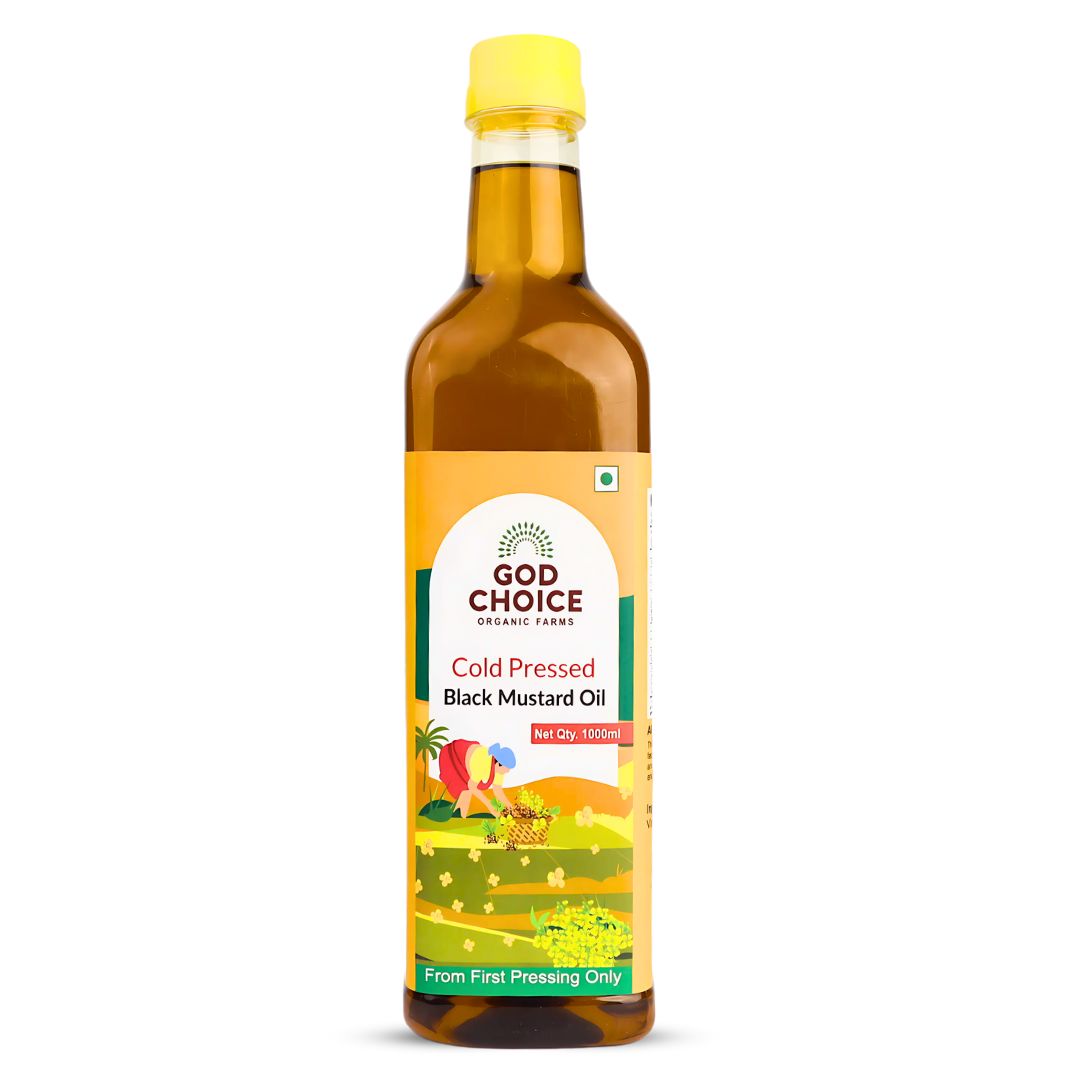
MAKING OF GOD CHOICE CULTURED GHEE
Ghee made from A2 cow milk is considered the essence of the milk. In ancient Indian scriptures, ghee was referred to as the 'Food of the Gods.' God Choice A2 Cultured Cow Ghee is meticulously crafted using the traditional Vedic process of ghee making, ensuring the highest levels of purity and quality in the most hygienic and safe conditions.
To begin, fresh milk from grass-fed native cows is carefully boiled to eliminate any bacteria. A small quantity of homemade curd is then added to the warm milk, and it is left undisturbed overnight to curdle. The following morning, the curd is churned to produce fresh Makhan.
The fresh Makhan is now cooked on medium flame to obtain the cultured ghee. Finally, the natural golden ghee is strained through a strainer and packed in glass bottles for shipment to our customers. God Choice A2 Cultured Ghee is known for its superior taste, captivating aroma, and exceptional health benefits, making it a healthier and more flavorful choice than any other ghee available in the market.

AN AYURVEDIC PERSPECTIVE
The Vedas, the oldest scriptures of Hinduism, refer to ghee as the 'first and most essential of all foods.' Ghee holds a significant spiritual perspective as well, as it cultivates Sattvic qualities within our bodies. Ghee contributes to the augmentation of Ojas in both our physical and mental well-being. In Ayurveda, Ojas is defined as 'vigor,' representing vital energy that nurtures all bodily tissues and is responsible for the optimal functioning of our body, mind, and spirit. Ghee is recognized as the single most potent Ojas-enhancing food on Earth.
Furthermore, ghee possesses the ability to reduce Pitta and Vata doshas, while in moderation, it helps balance all doshas within our bodies. Ghee is considered one of the best substances for Abhyanga, a self-massage practice. Abhyanga enables ghee to permeate directly into the deeper tissues, bypassing the digestive system, thereby providing immediate and targeted relief to affected body tissues.
Ghee enhances the overall strength, radiance, and beauty of the body.

A2 BETA CASEIN
A1 and A2 are types of beta-casein proteins. A2 beta-casein protein is considered a healthier protein and is even present in human milk. All native cow breeds, such as the Gir Cow, Sahiwal Cow, Perthis Cow, Kankrej Cow, and Tharparkar Cow, have A2 beta-casein protein in their milk.
A2 milk is known for its health benefits, as it is good for heart health, supports the well-being of babies, promotes a healthy brain, and aids in weight loss.

GHEE FOR BABIES
God Choice curd-churned ghee is the best ghee to introduce to babies. It's rich in nutrients and essential vitamins that promote a baby's growth during the early years. You can start incorporating ghee into your child's diet as soon as they begin eating solid foods. For children aged 7 months to 12 months, you can add three to four drops of ghee to their meals. After reaching one year of age, you can increase the quantity to one spoonful of ghee in their meals.
The omega-3 and omega-6 fatty acids in ghee contribute to the enhancement of brainpower in children.

A SPOONFUL OF GHEE EVERY MORNING
In Ayurveda, 'Rasa' signifies the flow, referring to the food essence that circulates in the body through the blood. Consuming a spoonful of cow ghee in the morning on an empty stomach maximizes the nourishment of Rasa, which serves as a vital source of nutrients for every individual cell in the body. Pure cow ghee rejuvenates our cells, thereby enhancing the body's healing processes.
Ghee acts as a natural antioxidant, neutralizing free radicals and reducing the oxidation process in the body. This, in turn, helps prevent cell damage and slows down the aging process.
Ghee contains butyric acid and medium-chain triglycerides, which aid in eliminating unhealthy body fats, consequently increasing the levels of good cholesterol in our bloodstream.
Furthermore, ghee supports the metabolic process by improving nutrient absorption in the small intestine and reducing the acidic pH of our gastrointestinal tract.



